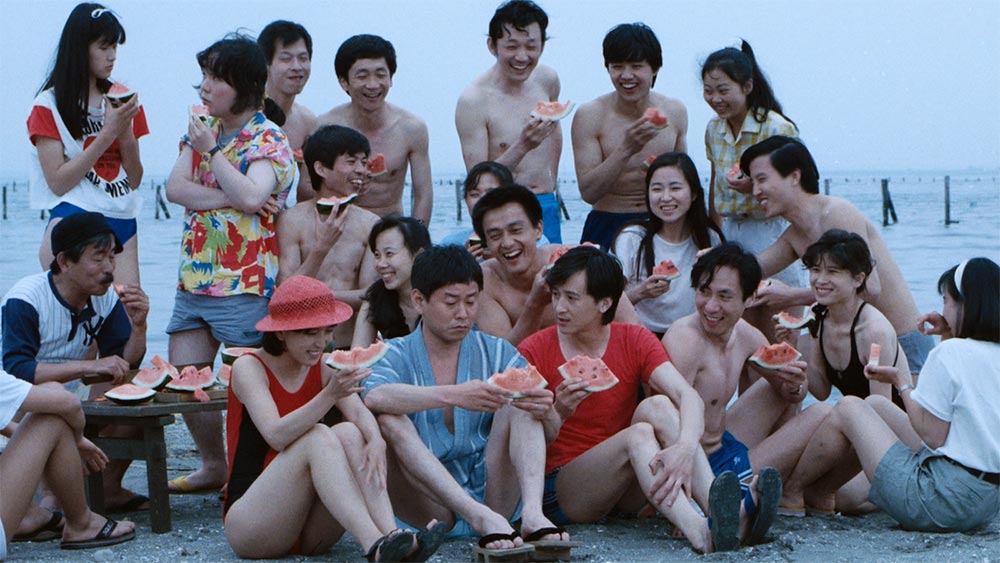“Shut up, I already know,” a man tells his alarm clock before turning it off. “How many years do you think I’ve been doing this?” Shunzo Yamaguchi (Bengal) wakes up this morning as he has hundreds before: he wipes his eyes, gets dressed, and sings to himself on the long, foggy drive to the docks. Director Nobuhiko Obiyashi’s Beijing Watermelon (1989) is based on the true story of a Japanese greengrocer who became a kind of surrogate father to Chinese exchange students in the late 1980s. The film goes down easy, bringing a light, often comic touch to themes of cultural dissonance, diaspora, and financial precarity. When Li, an impoverished architecture student, laments that he cannot afford fresh vegetables, Shunzo will not hear it. For Shunzo, things cost what they cost. But at his wife’s goading, the two play a game of janken (rock paper scissors, as we know it in the west)—if Li wins, he gets the produce for cheap. He does.
Shunzo slowly warms up to Li and his classmates. The pragmatism that has gotten Shunzo this far is gradually replaced with something else: altruism. It is an internal change brought to the surface with a handful of notable close-ups. Obiyashi holds the frame long enough for the audience to see Shunzo’s brows soften, his cheeks pucker as he forms a closed mouth smile. He continues to sell produce at a heavy discount, going so far as pawning the family truck to make up the losses. Shunzo’s generosity begins taxing his family. “Breakfast keeps getting smaller and less tasty,” his daughter remarks. But ultimately, tenderness prevails. At a reunion with some of the students Shunzo had supported over the years, Mrs. Yamaguchi breaks down in tears, thanking them for the man they helped her husband become and apologizing for her own selfishness. Friendship ceases to be a political idealism once people accept that there is always something they can give up—which is to say, to share.
Beijing Watermelon is an unexpected delight—both a humanistic reflection of a significant historical juncture and an affirmation of goodness in people across cultures. One person cannot unburden a nation, chase away its sins, or mend fraught regional histories. But Beijing Watermelon reminds us that being part of a community should cost you something, and that what you get in return far exceeds that initial offering. Call it proletarian solidarity, call it being a good neighbor.
Beijing Watermelon runs June 7-13 at Metrograph as part of the series “Nobuhiko Obayashi x 3.”



